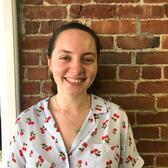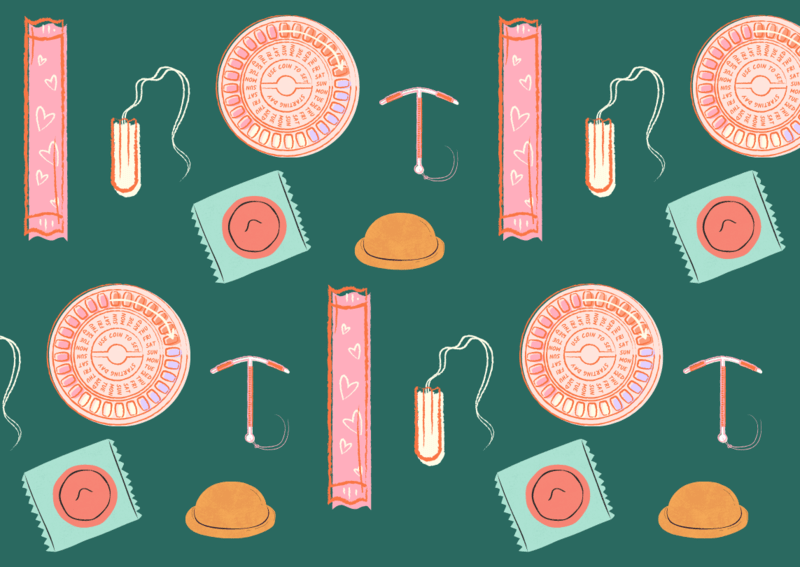Meet the Hasidic Women Talking about Sex
One of my favorite Instagram accounts, Adina Miles-Sash, also known as @flatbushgirl, is an Orthodox Jewish blogger and community activist who advocates for centering women’s voices in the Hasidic and Yeshivish worlds. I watch her stories religiously (pun intended), and I adore her inviting sense of humor, her biting and unapologetic criticism of Orthodox leadership (men), and her incredibly charming Brooklyn accent. Adina is just one of the many women at the forefront of shaping progressive politics in the Orthodox community, including issues like reproductive justice and women’s empowerment. As a socially invested Jewish woman, albeit one who is unaffiliated, it’s important to me to keep up with Orthodox feminist discourse and learn from conversations happening in all sectors of the Jewish world.
Weeks ago, Adina began highlighting a sexual health webinar run by a new organization called the Jewish Orthodox Women’s Medical Association (JOWMA), and I was intrigued. For weeks, I kept scrolling through JOWMA’s website and tuning into Adina’s Instagram, where she raffled off prizes for those who registered for the event. Finally, I decided to register and attend myself.
At 8:15 p.m. on a Sunday, I whipped open my laptop to learn about the basics of sexual health and care along with over 1,000 other Orthodox and non-Orthodox Jewish women. The moderators—among them sex therapist Rachel Hercman, LCSW, and physiatrist Atira Kaplan, MD—emphasized that the webinar was not Halakhic-based (based in Jewish law), but rather meant to offer a basic overview of our anatomy, our personal relationships with our bodies, and what healthy sex can look like.
Throughout the webinar, hundreds of women submitted anonymous questions. The submissions ranged from basic questions like, “Is tampon use dangerous?” to personal confessions like, “I’ve been married eight years and haven’t orgasmed once” and questions like “What is an orgasm?”
Anonymous attendees continued to unveil aspects of a world riddled with sexual secrecy and shame via their submissions. I kept gasping at my screen, wanting to climb in and answer the questions myself. It was both frightening and promising to think that this was the first time many Hasidic women learned about their basic anatomy. I had received most of this information in health class as a preteen girl, but many of these women have been married for years. JOWMA is quite literally giving women power by equipping them with knowledge they would otherwise have no access to. Orthodox women deserve to be able to make informed decisions about their sexual health and prosperity. Otherwise, they remain vulnerable to domestic abuse, blaming themselves for completely treatable sexual disorders, and, frankly, bad sex.
The moderators’ consistent advice? Seek a medical professional and find a sex therapist. They emphasized that the purpose of the event was not to diagnose problems, but merely to offer resources. I cannot overstate the importance of this framework. It’s unfortunately uncommon for women, especially Orthodox women, to be reassured that they are normal and that it is okay to ask for help. Reducing shame around intimacy issues and sex therapy is essential. The moderators affirmed that addressing our sexual and vaginal health should be as normal as working out. We must care for our bodies in their entirety.
So, why was I so interested in spending my Sunday night learning about the anatomy of the hymen and the importance of pelvic floor health? Well, I am a leftist Jewish woman, whose personal values are that of prison abolition, queer liberation, and mutual aid. But my mother’s brother went down the Chabad Lubavitcher path in his early twenties, and now a large part of my family is Hasidic. In my childhood, I spent many Shabbats in Crown Heights. I’ve prayed at 770, the world headquarters of Chabad Jewry. I’ve eaten, learned, and shared space with my Hasidic family and their communities.
And so I am invested in the politics of the Orthodox and Hasidic communities, and I am also defensive against the myth that Orthodox women are willfully oppressed by their lifestyle—we must support initiatives like the sexual health webinar that allow women to live observant lifestyles while also taking care of and understanding their bodies and sexualities. While we should name the widespread abuse and misogyny present in some of these sects, we must also celebrate the Hasidic women who combat these issues while also maintaining full-time jobs and raising their families.
Informed communities are safe communities. In my personal vision of a liberated world, communities can and should take care of themselves—which is why it’s so important that the organizers of the JOWMA webinar were not outsiders but rather women who identify as Orthodox. This framework highlights that all types of communities can be self-sustaining, including Orthodox Jewish ones, which are often negatively perceived as insular. By learning about and supporting initiatives like this, which allow Orthodox women to teach and help each other, we can empower members of this community to address and combat an enduring sexual health crisis.







